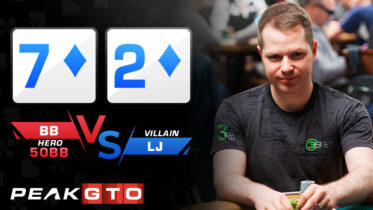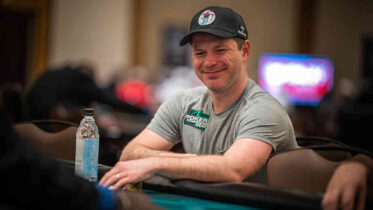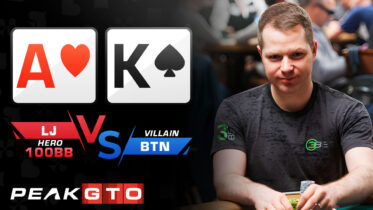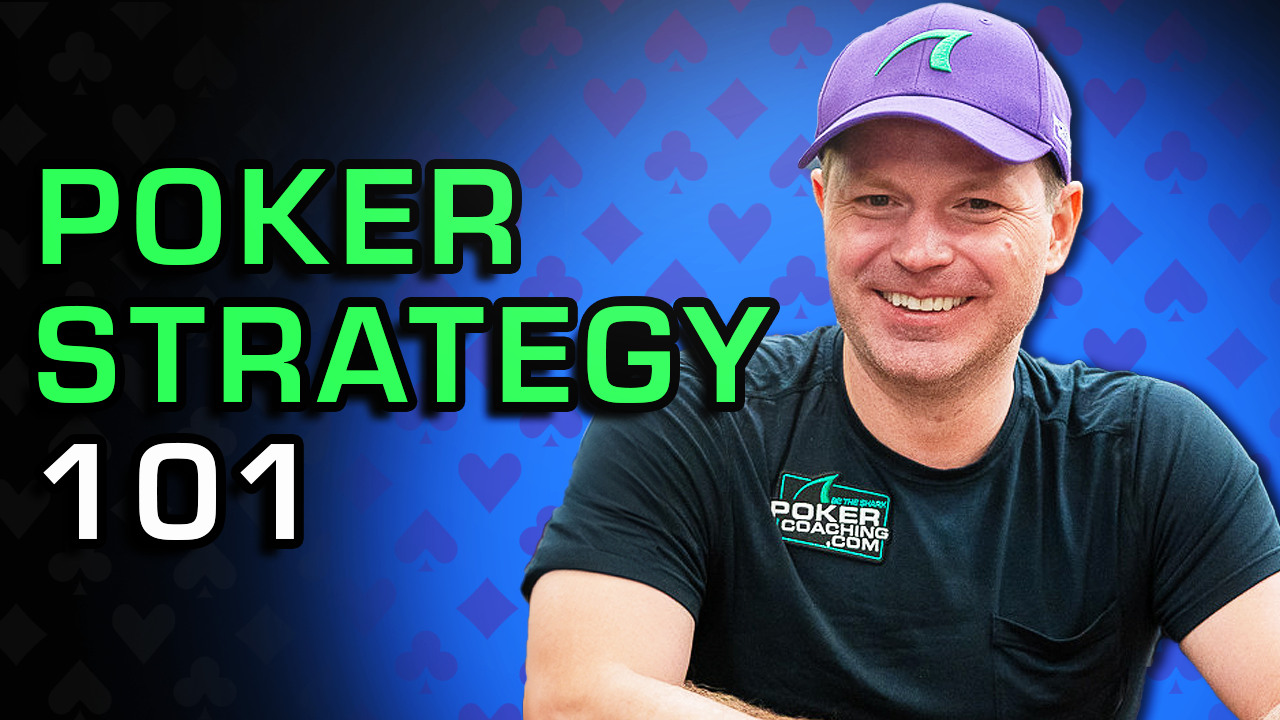Your bankroll has you cornered into playing small-stakes games with some pretty shoddy players. You want to develop your game, but that’s hard to do when you’re surrounded by mice and fish.
It’s even harder to endure when the lack of skill from these players makes for some loose, boneheaded plays – loose, boneheaded plays that win. Cause that’s just the way the game can work sometimes. Sure, these players aren’t going to win consistently at their current skill level, but they can win enough to really piss off more studious opponents.
So what to do when you’re pitted against bad players?
You don’t want to quit playing, obviously, but there are some measures you can take to take back control and start profiting.
First, ask yourself why it bothers you to play against less skilled opponents. I mean, it’s ultimately a good thing. The reason you’re pissed off is usually because of one or a combination of these three things:
1) You can’t stand losing to loose players. Fair enough, but it’s poker, and you’re going to lose to some form of player. You can’t win ’em all.
2) You hate getting drawn out on. Who doesn’t? But consider this: as much as it sucks to watch someone you consider to be an inferior player make their hand on the turn or river, you have to ask yourself what you were doing still in the hand. Should you have really been there? Maybe, but also, maybe not. And in the cases where the answer is clearly not, you were probably being driven by your ego rather than reason. This is on you, not them.
3) They’re hard to play against. Damn right they are. It can be like trying to win an argument with a toddler about the merits of not eating their own boogers. And it’s just as demeaning and frustrating. But much like that four year old, you won’t be able to win against these sorts of opponents unless you change up your strategy. You can’t reason with a four year old the way you’d reason with another adult, and you can’t play a less skilled player the way you’d play someone on your own level.
But with a few simple tweaks to your game, you can rule the roost. Here’s what I mean:
Strategy Adjustments
Playing only strong starting hands isn’t always the best approach. Especially with players who’ll give action to just about any two cards. Playing TAG is a safe strategy, but it’s not always going to make you the most money.
Something’s going to have to change.
If you don’t want to adjust your range, then adjust your bets. Maybe 15 to 20 BB to see how many callers you get. Maybe you should limp in. Maybe you should just suck it up and broaden your range, calling more raises and seeing more flops. In other words, focus on better post-flop play – which these ‘bad’ players probably haven’t developed.
Get inside their heads.
Their strategy may be flawed, but there’s still a method to their madness. Try to figure out what they’re thinking so you can exploit it and minimize your losses. If you know they regularly limp along, banking on connecting, then an abrupt change from passive behavior (i.e., checking, calling) to active play (i.e., betting, raising) may mean you should fold your top pair to their sixes because they probably got lucky.
Should you move up to higher stakes for ‘better’ play?
Here’s the thing: just because the stakes are higher doesn’t mean the game is better. Not only do you have to be confident you can hold your own in a higher stake game if you want to actually enjoy it, but you’ve also got to realize there are plenty of crappy players flooding the higher limit tables too. They’re just crappy players with more money.
Bad Players = More Opportunity
As long as it’s a Texas Hold’em no-limit game, landing yourself at a table replete with less skilled players is akin to finding yourself in Shangri La. (Fixed limit doesn’t give you as much room to outthink your opponent via strategic betting.) I understand that playing against better players can make you a better player, but:
1) You can still develop some pretty savvy and creative strategy trying to out-maneuver a bad player, and;
2) Your earning potential is a lot higher against a less skilled opponent. This is why I love playing against ‘bad’ players: they’re good for business.
As long as you adjust your strategy accordingly when playing against your less skilled counterparts, you’re golden. After all, you should be able to beat the worst players before you can tackle the better.




